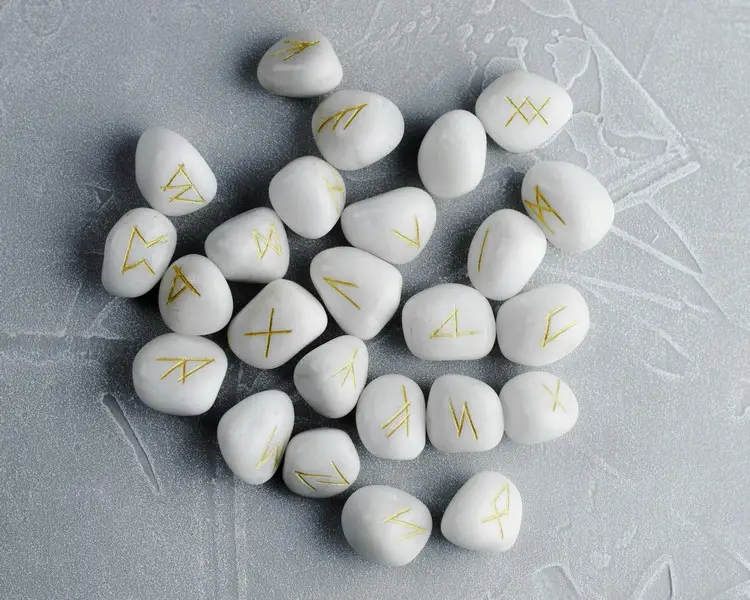Table of Contents
- Understanding Divination in Historical Context
- The Social Functions of Divination
- Divination in Contemporary Society
- The Future of Divination in a Digital Age
- Conclusion: The Sociological Significance of Divination
Divination, the practice of seeking knowledge of the future or the unknown through supernatural means, has been a prominent feature in cultures worldwide since ancient times. Despite its mystical allure, divination can be understood through the lens of sociology as a social practice, deeply embedded in human societies and reflecting significant social functions. From tarot readings to astrology and crystal ball gazing, divination practices continue to thrive in modern societies, often adapted to fit contemporary cultural needs. This article explores divination from a sociological perspective, examining its historical significance, social functions, and contemporary relevance in various societies.
Understanding Divination in Historical Context
The Origins and Persistence of Divination
Divination can be traced back to the earliest civilizations, with evidence of its practices found in Mesopotamia, ancient Egypt, China, and among indigenous tribes worldwide. Historically, divination was used by shamans, priests, and rulers to guide decisions on matters as significant as warfare, crop cultivation, and political alliances. Its persistence over millennia suggests a profound and intrinsic human need to understand and potentially influence uncertain futures.
Sociologically, divination can be seen as an early form of knowledge-seeking and sense-making in societies where scientific knowledge was limited or non-existent. By observing patterns in nature, reading omens, or interpreting symbolic objects, early societies created systems of meaning that aligned with their worldview. This ability to explain the unknown provided a sense of control, serving as a coping mechanism in unpredictable environments.
Divination as a Ritual Practice
In most societies, divination has held a ritualistic quality, imbued with sacred meanings. Rituals associated with divination vary widely, from the casting of bones in African traditions to the reading of tarot cards in Europe. Through rituals, divination integrates with collective values, reinforcing social cohesion and shared beliefs. From a sociological standpoint, these rituals serve to reaffirm the cultural and moral frameworks of a community, contributing to social stability and continuity.
The Social Functions of Divination
Sociologists often examine social practices to understand the roles they fulfill within a society. Divination, despite its mystical connotations, serves several identifiable social functions.
Coping with Uncertainty
Uncertainty is a fundamental aspect of human life, and divination provides a structured means of dealing with it. According to sociological theories of risk and uncertainty, individuals and societies develop various mechanisms to manage the anxiety that comes with an unknown future. In modern secular societies, science and technology fulfill this role by offering predictions and solutions. However, where scientific answers are limited or unable to address existential concerns, divination provides an alternative means of grappling with uncertainties.
For instance, astrology has regained popularity among millennials, often viewed as a tool for self-reflection and understanding relationships. This trend suggests that even in technologically advanced societies, divination persists as a way to address personal insecurities, navigating both existential and everyday uncertainties.
Reinforcing Social Roles and Hierarchies
Divination practices have historically played a role in reinforcing social roles and hierarchies. In many traditional societies, diviners or shamans occupy a prestigious position, embodying both spiritual and social authority. Their status is maintained through the performance of divination rituals, which often require specialized knowledge and skill. By positioning diviners as intermediaries between the earthly and the supernatural, societies reinforce a sense of order and hierarchy, wherein only certain individuals are privileged to access divine or supernatural insights.
This structure is evident in the role of the oracle at Delphi in ancient Greece, where only a select group could interpret messages from the gods, reinforcing the political and social stratification of that era. In contemporary societies, while diviners may not hold formal authority, individuals who engage in practices like tarot reading or psychic consultations can still hold influential social roles, shaping beliefs and guiding personal choices for their clients.
Creating Community and Social Cohesion
Divination also functions as a source of social cohesion, offering collective identity and a shared sense of belonging. In many societies, group divination rituals allow participants to engage in communal reflection, often addressing shared concerns or hopes. These communal experiences strengthen social bonds, creating a sense of unity and mutual understanding. The collective nature of these rituals also reinforces shared cultural values, as participants align their individual anxieties with communal beliefs and practices.
In contemporary times, digital platforms have facilitated new forms of collective divination practices, such as online astrology communities or virtual tarot reading groups. These communities, while dispersed geographically, provide a sense of collective belonging and shared purpose, especially for individuals seeking spiritual or personal guidance outside of mainstream religious institutions.
Divination in Contemporary Society
Get the full article AD FREE. Join now for full access to all premium articles.
View Plans & Subscribe Already a member? Log in.





